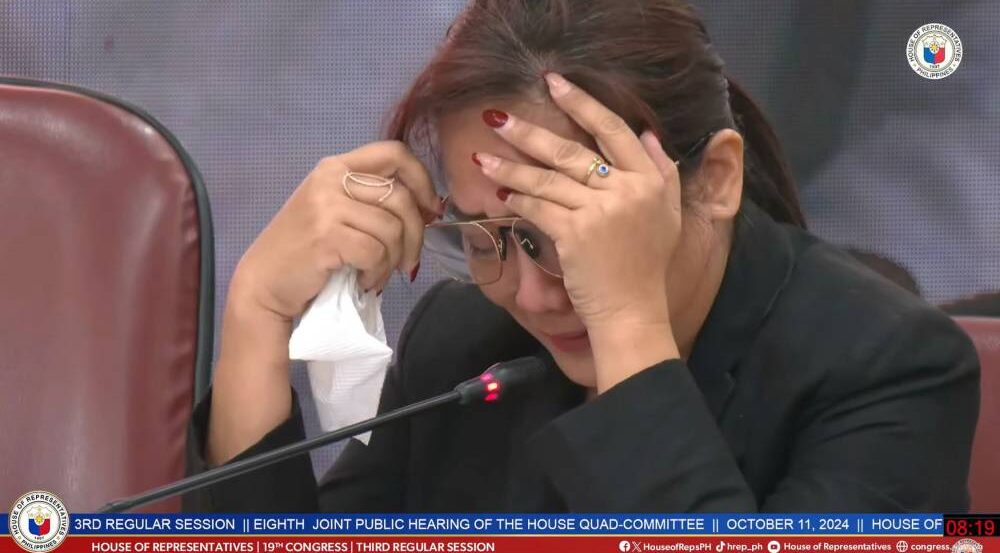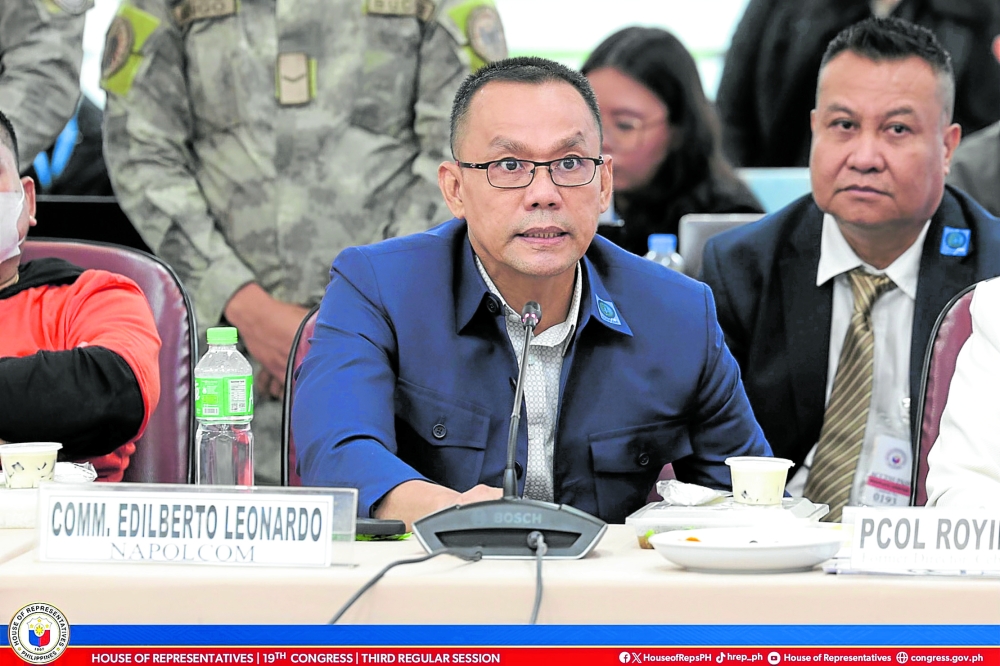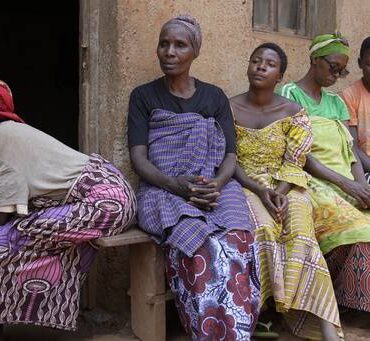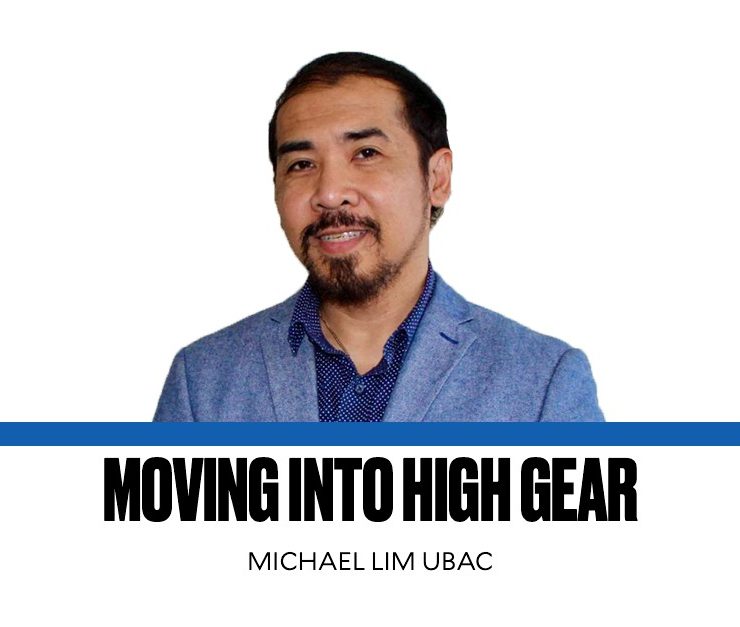All the ex-president’s men—and a woman
Following nine hearings, it seems that the Lower House has gained the upper hand in its investigation into extrajudicial killings linked to former president Rodrigo Dueterte’s bloody drug war. Can the Senate, which will start its own parallel inquiry “on a clean slate” next week, quickly catch up with the House of Representatives’ quad committee?
By strategically utilizing its contempt powers, the committee has compelled its witnesses and resource persons to speak out against their superiors, past and present. The quad committee’s marathon hearings—from midmorning to past midnight—have led to startling confessions which helped to create a composite picture of the true scale of the drug war.
Principally chaired by Rep. Robert Ace Barbers, the four-committee panel is also led by Repressentatives Romeo Acop, Bienvenido Abante Jr., Dan Fernandez, Aurelio Gonzales Jr., Joseph Paduano, and David Suarez.
For now, these lawmakers have all the aces, thanks to the cooperation of ex-police colonels Royina Garma and Edilberto Leonardo. The duo are erstwhile close aides of Duterte who had direct access to him and his former special assistant, Sen. Bong Go.
The supporting cast, but no less important, are Corrections Supt. Gerardo Padilla, Lt. Col. Santi Mendoza, Police Lt. Col. Jovie Espinosa, confessed drug lord Kerwin Espinosa, and several current and former police officers involved in the assassinations of mayors.

Follow the money
The quad committee reached a milestone in its inquiry during its eighth hearing on Oct. 11.
After weeks of hemming and hawing, Garma changed her tune and directly implicated Duterte in the drug war killings. He allegedly offered cash rewards akin to the “Davao model,” but the national implementation involved three levels of payments or rewards ranging from P20,000 to P1 million for every drug suspect killed, she said.
In a reversal of fortune, it was Duterte and his closest of confidants who were the subjects of a supposed drug war “matrix” showing how reward money for drug killings allegedly flowed from Duterte, through Go, down to then Philippine National Police chief and now Sen. Ronald “Bato” dela Rosa and Leonardo, whom Garma labeled as the “paymaster.”
Thus, in one fell swoop, Garma succeeded in providing the public with a much clearer picture of how Duterte’s open threat to kill drug suspects was translated into concrete—and deadly—terms on the ground using the Davao template.
The implications of Garma’s explosive revelations are too weighty to be ignored.
First, one by one, Duterte’s men and their individual roles in implementing the drug war were established. Second, this was the first time that Go was directly implicated in the drug war by a confidante of Duterte, no less. Both senators denied the allegations, even vowing to lead a parallel inquiry to clear their names (but later backed down amid objections from Senate President Francis Escudero).
Barayuga slay
Finally, Garma acknowledged her closeness to Duterte, despite being ambiguous when asked about rumors of her romantic relationship with him, and secondly, her involvement in the murder of retired Gen. Wesley Barayuga.

Former National Police Commission Commissioner Edilberto Leonardo–HOUSE OF REPRESENTATIVES PHOTO
Before midnight on Oct. 22 (the ninth hearing), Leonardo came to his senses and followed in the footsteps of Garma. Following his resignation as National Police Commission commissioner, he faced the quad committee once more to confirm the existence of a reward system and the notorious Davao Death Squad (DDS).
Leonardo, like Garma, denied involvement in the Barayuga murder and paying cash to police who killed drug suspects, possibly to protect themselves from murder charges that would be filed against them. Padilla, the former head of the Davao penal colony, also implicated Garma in the killings of three detained Chinese drug lords in 2016. However, these unresolved murders are hanging over their heads like a sword of Damocles, compelling them to spill the beans on Duterte and his men.
Moreover, Garma’s confessions, backed up by two sworn affidavits, are so crucial to the whole congressional investigation that Duterte himself had to phone her on Oct. 17, explaining his choice of Leonardo as the head of a planned nationwide antidrug task force.
As if the confessions weren’t horrific enough, Espinosa separately told the quad committee that he was coerced by Dela Rosa to falsely testify against then Sen. Leila de Lima in 2016. At the hearing, Espenido then surprisingly corroborated Espinosa’s claim. Espenido even retracted his incriminating statements against De Lima, who also appeared before the quad committee on Oct. 22 to confirm the DDS payoffs’ template for hired gunmen and their handlers.
In all of these, we note the diligence and hard work of the House panel members under the leadership of Speaker Martin Romualdez. They may not be as popular as senators, but these honorable lawmakers have shown undisputable competence in cross-examining and eliciting the answers that we all need to hear to lead us even closer to the truth.


















